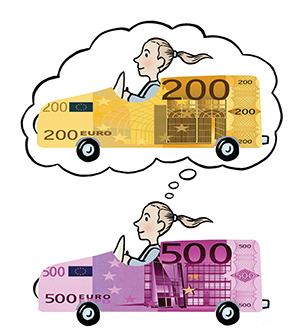 loading
loading
FindingsDriving lessonsPeople underestimate the cost of owning a car.  Gregory NemecView full imageIf you own a car, it’s doubtful you know how much it’s costing you. You know how much you paid for it, of course. You may have a good sense of what you shell out for gas. But the other stuff—the repairs, the insurance, the taxes, the depreciation? Guess higher. A new study published in Nature surveyed more than 6,000 German car owners and found, conservatively, that people underestimate these expenses by an average of 161 Euros (about $175) per month. Over a car’s lifetime, the unnoticed expenses added up to 35 percent of the initial cost of the car. “People understand, to some reasonable degree, what fuel costs are,” says coauthor Kenneth Gillingham, an associate professor of economics at the Yale School of the Environment. “But they don’t seem to have reasonable beliefs about many other costs.” Plug the real costs into a model of how people respond to automobile prices, and car ownership plunges by 37 percent. In real life, that would lead to a 23 percent drop in CO2 emissions from Germany’s transportation sector. Bus and rail travel, meanwhile, would increase. The electric-vehicle market could boom. All this, says Gillingham, presents an enticing prospect: alongside the sticker price, why not inform consumers of a car’s average monthly costs? That simple measure could dramatically reduce automobile purchases and emissions in a way that’s far more straightforward than, say, a tax on gas. (Fuel prices would have to rise by 1,242 percent to have the same effect on car buying.) “Having some type of labeling would make people recognize there are actually other costs,” Gillingham says.
The comment period has expired.
|
|